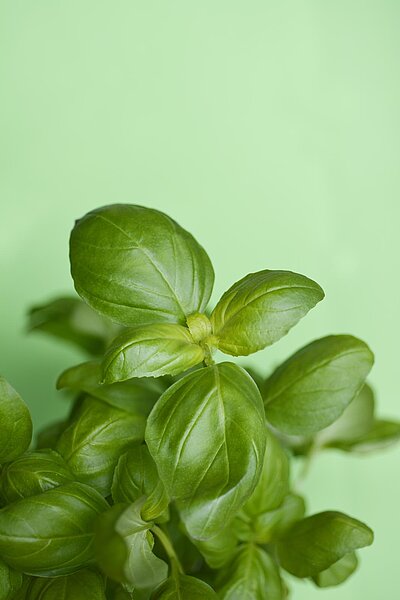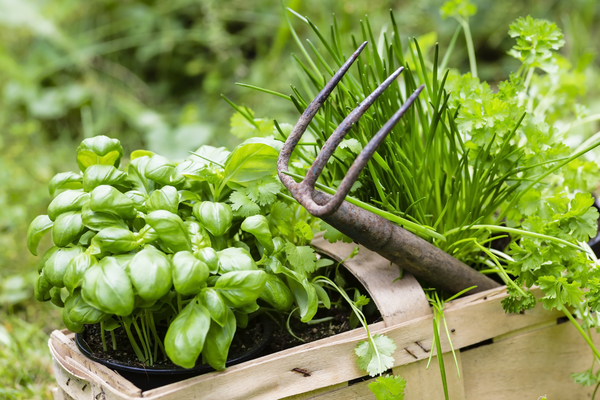Basil

What is basil?
Basil is a green herb that belongs to the labiate family. There are many different varieties of basil, including the classic Genovese basil and the sweet basil. This herbal ingredient has a characteristic taste and smell and is often used in Mediterranean cuisine.
The benefits of basil for dogs
Basil has several potential benefits for dogs. It is rich in antioxidants, which can help boost the immune system and reduce inflammation in the body. It also contains vitamins and minerals, such as vitamin K, calcium and iron, which are important for bone, muscle and tooth health. Basil can also help to support the digestive system and help regulate blood sugar levels.
How can basil be used for dogs?
If you want to feed your dog basil, there are several options. One option is to add the herb directly to his regular meal. You can also crush a small amount of basil leaves and mix it into the food or use it as a treat.
The possible disadvantages of basil for dogs
Although basil has many benefits for dogs, there are also potential disadvantages. Some dogs can be sensitive to herbs, so you should be careful when using basil and keep a close eye on your dog. You should also be careful not to give your dog too much basil, as this can lead to digestive problems. Finally, you should make sure that the basil you use does not contain any harmful pesticides or other chemicals that can be dangerous for dogs.
Basil is a potentially beneficial herbal ingredient for dogs, rich in antioxidants and important vitamins and minerals. However, if you want to feed your dog basil, you should be careful and monitor your dog closely to make sure he doesn't have any negative reactions. It is also important to make sure that the basil used is of high quality and free from harmful chemicals. With care and in appropriate amounts, basil can be a healthy addition to your dog's diet.
Properties 4
Are you looking for other ingredients with a specific property?
Just click on them to find more.
If you notice any signs of hypersensitivity or poisoning in your dog, you should see your vet immediately. We are not a substitute for a vet, but we try to be as accurate as possible. Every dog reacts differently and we recommend you get a second opinion or consult your vet if in doubt.
Stay healthy and take good care of your four-legged friend!😊
Similar to Basil
Parsley is a plant from the umbellifer family, which also includes carrots, celery and fennel. It has green, curly or smooth leaves with an aromatic scent. Parsley originates from the Mediterranean...
Herbs are plants or parts of plants that are used for their aroma or active ingredients. They can be fresh or dried, whole or crushed, as tea or oil. Herbs contain various ingredients, such as...
Oregano is a herbaceous plant from the labiate family. It is native to Europe, the Mediterranean region and parts of Asia. Oregano is often used as a spice in cooking and is known for its strong...
Thyme belongs to the labiate family and grows mainly in the Mediterranean region. It has small green leaves and pink or white flowers that attract many bees. Thyme contains essential oils such as...



